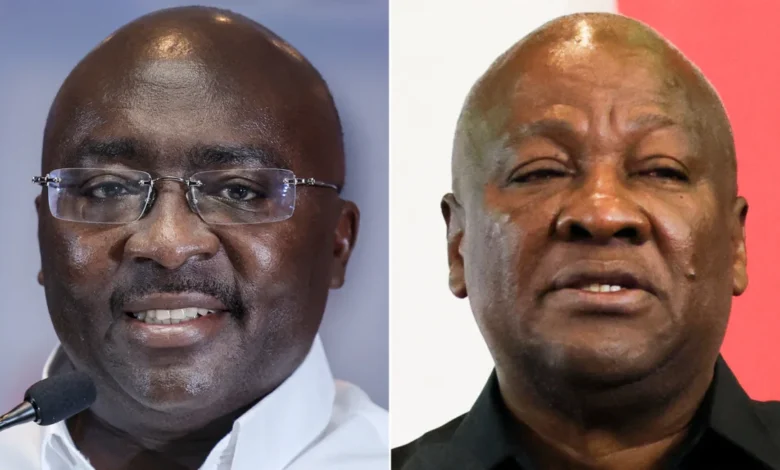
NexNews — Ghanaians are preparing to vote in a high-stakes presidential election on Saturday, with former president John Mahama hoping to make a dramatic return to power, facing off against current Vice President Mahamudu Bawumia. The election takes place as the country is grappling with its worst economic crisis in decades.
Twelve candidates are vying for the presidency, but the two leading figures are Bawumia, 61, of the ruling New Patriotic Party (NPP), and Mahama, 66, of the opposition National Democratic Congress (NDC). Polls suggest the race is close, with voters split between the two candidates.
The country has been dealing with a range of pressing issues, including high unemployment, rising poverty levels, and an ongoing crisis over illegal gold mining, known locally as “galamsey.” Environmental degradation caused by unlicensed mining has led to widespread pollution of rivers and destruction of land, further exacerbating the nation’s difficulties.
Ghana’s economic woes have been compounded by high inflation, youth unemployment, and a sharp increase in the cost of living. The COVID-19 pandemic has further strained the economy, pushing more people into poverty and increasing the risk of food insecurity. In December 2022, inflation reached its highest level in over two decades, sparking protests over economic mismanagement.
As the architect of the government’s economic policies, Bawumia has faced criticism for the country’s economic struggles. Despite this, he has defended his record, pointing to improvements in infrastructure and job creation during his tenure. Bawumia’s critics, including Mahama, argue that his handling of the economy has been inadequate, particularly as inflation soared under his watch.
Mahama, on the other hand, promises to “reset” the nation and improve governance if elected. He has vowed to cut taxes, reduce unemployment, and tackle illegal mining. His supporters are looking to his past successes, including efforts to boost press freedom and lower unemployment during his previous term in office.
The election will be held alongside parliamentary elections, and a candidate must secure more than 50% of the vote to win outright. If no one achieves this, a runoff will take place between the top two candidates. With millions of Ghanaians seeking change, the outcome of the election is expected to be closely contested.
Both Bawumia and Mahama’s campaigns are shaped by the urgent need to address the economic challenges that have dominated the national discourse, and many hope for a peaceful transfer of power in line with Ghana’s democratic tradition.





